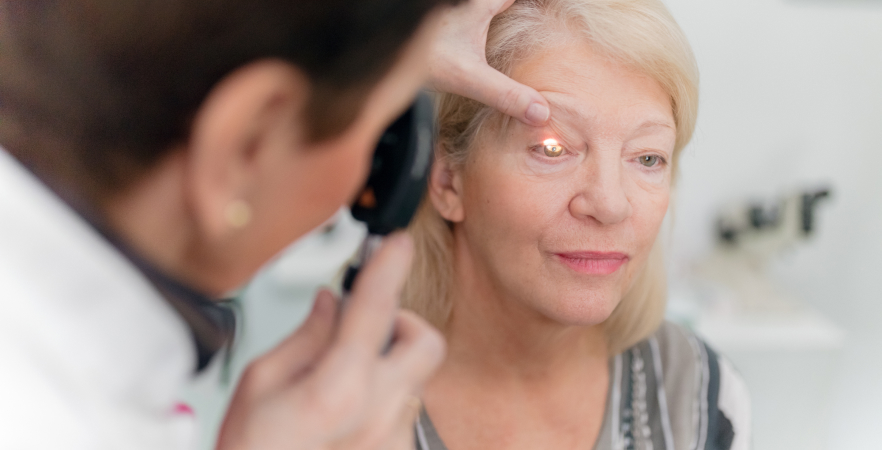Why are Regular Eye Exams So Important in Patients with Diabetes?
Diabetes is a disease that affects the entire body because it is a disease that primarily affects the smallest blood vessels. Your eyes contain many smaller blood vessels, so diabetes can often have a lasting effect on vision. Hear from Bailey Weber Wisner’s Dr. Jeffrey McMahon on how regular eye exams can help with the detection and treatment of diabetic eye disease and why they are so important to patients with diabetes.
How Can Regular Eye Exams Help Diabetics?
The vision loss associated with diabetic eye disease, including diabetic retinopathy, can occur very slowly—almost imperceptibly, and by the time you notice the damage to your vision, it may already be too late to fix it. Regular eye exams, at least once a year for people with diabetes, allow your ophthalmologist to detect potential problems and advise on treatment before they cause permanent damage to your eyesight.
Some conditions, like cataracts which are more common in diabetics, can progress significantly without patients noticing—as the change is so gradual. The brain can adapt to this gradual vision loss, so patients might have significant cataracts that impede their ability to drive without even noticing that their vision is degrading. Regular eye exams can help all patients keep track of these changes and avoid dangerous situations—and these exams are especially necessary for patients with diabetes, as they are at risk of developing cataracts earlier and more quickly than patients without diabetes.
How Often Should Diabetics Get Regular Eye Exams?
We recommend that patients schedule an eye exam as soon as they receive a diabetes diagnosis, as this will help their doctor establish a baseline, detect any existing damage, and track the progression of diabetes-related conditions. After that, it is essential to pay close attention to changes in the eye, and many organizations, including the American Diabetes Association and the American Academy of Ophthalmology, recommend eye examinations at least annually for patients with diabetes who haven’t been diagnosed with diabetic retinopathy. Suppose your eye doctor does detect diabetic retinopathy or another sign of diabetic eye disease at one of your eye exams. In that case, they will likely recommend more frequent appointments—depending on your needs.
Can Regular Eye Exams Help with the Detection of Diabetes?
When it comes to diabetes, the eyes can often be one of the first places symptoms are detectable. Sometimes patients come to us with symptoms associated with diabetic eye disease, even before their primary care provider has diagnosed them. In those cases, when we see symptoms suggestive of uncontrolled diabetes, we can suggest that the patients follow up with their primary care provider and request to be tested for diabetes. While we cannot provide a diagnosis of diabetes ourselves, at Bailey Weber Wisner, we have close relationships with local primary care physicians and can refer patients to them.
